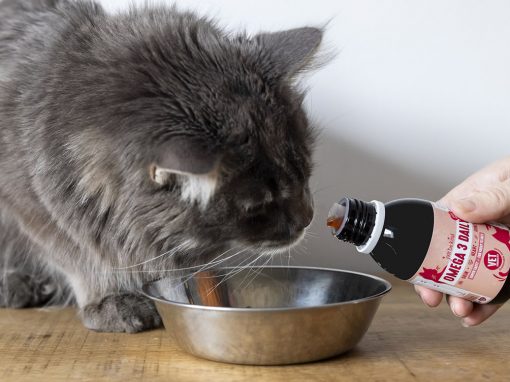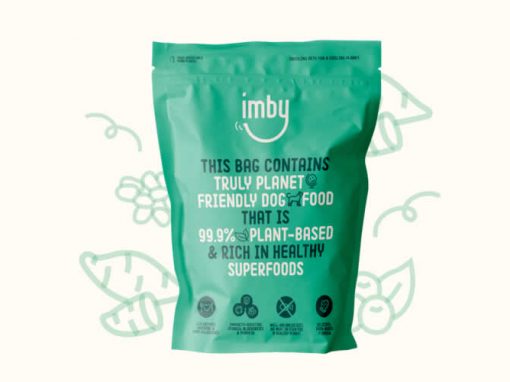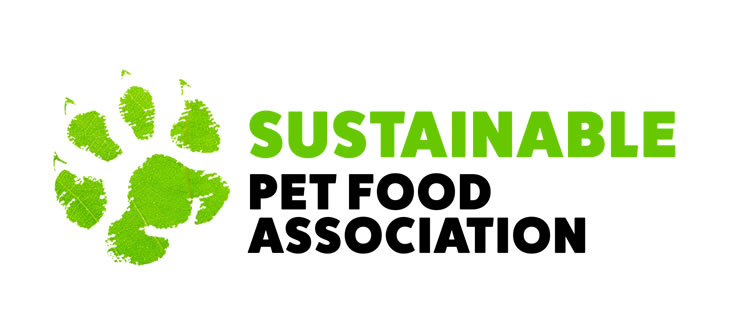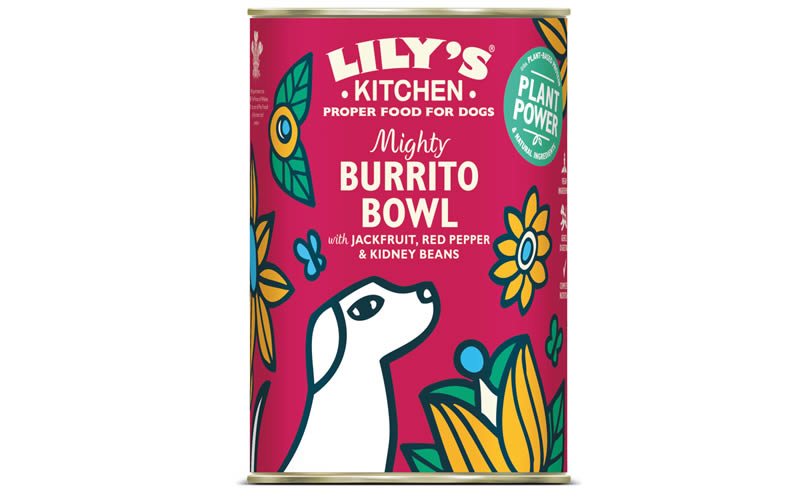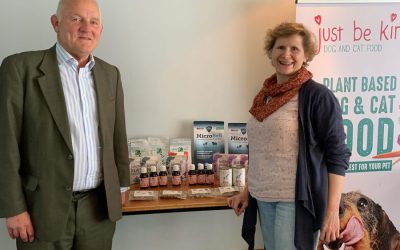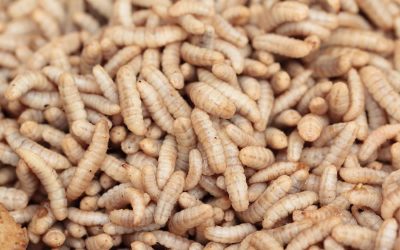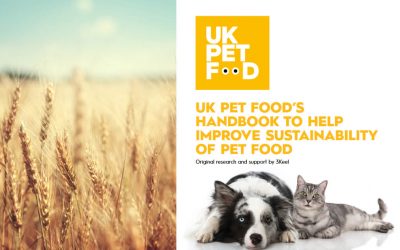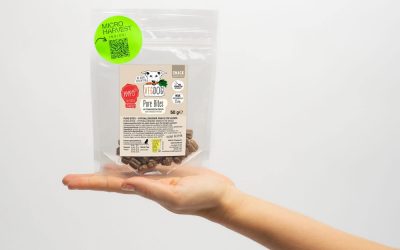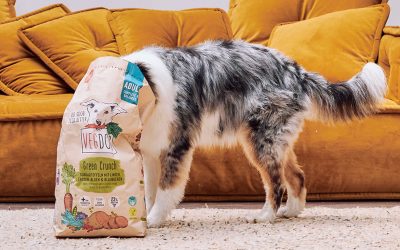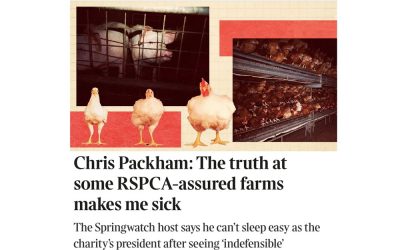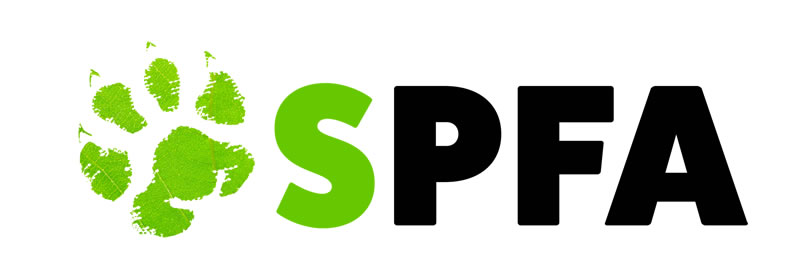Lily’s Kitchen Finds Success in Plant Power Meals and Treats for Dogs
As demand for vegan pet food soars, natural pet food brand Lily’s Kitchen, acquired by Nestlé Purina PetCare, has been expanding its vegan range for dogs into independent pet shops and retailers such as Sainsbury’s and Pets at Home.
Lily’s Kitchen was founded in 2008 by Henrietta Morrison in London to offer dogs and cats natural and healthy wet and dry foods. The brand became popular among younger pet owners and millennials, and by 2019, its products retailed in 6,000 stores in 30 countries worldwide. In 2020, Nestlé Purina PetCare acquired the premium pet food company valued at an estimated £85 million.
In 2021, after the rise in dog options during the pandemic lockdown and the new consumer awareness of the benefits of plant-based food, Lily’s Kitchen launched its first line of “plant power” vegan meals and snacks for dogs, promoting them as an alternative for Meat Free Mondays or an ideal option for dogs sensitive to meat.
A growing interest in the vegan range
“Since launching our Powered by Plants recipes in 2021, we’ve seen continued interest in the range, especially the treats. In addition to our website and independent pet stockists, the range is also available in Sainsbury’s and Pets at Home,” Lily’s Kitchen told Vegconomist.
According to the brand, its vegan recipes are crafted by expert nutritionists to “serve up delicious flavour and complete nutrition.” The products offer a mix of plant-based ingredients, such as legumes or quinoa, vegetables (instead of cereals), fibres, essential vitamins, and antioxidants. Lily’s Kitchen range includes Mighty Burrito Bowl with Jackfruit, Vibrant Rainbow Stew, Tropical Mango Jerky, and Succulent Sweet Potato Jerky with Jackfruit.
At the beginning of the year, The Grocer reported that Lily’s Kitchen revenues had risen to 31.6% from 2021 to March 2022.
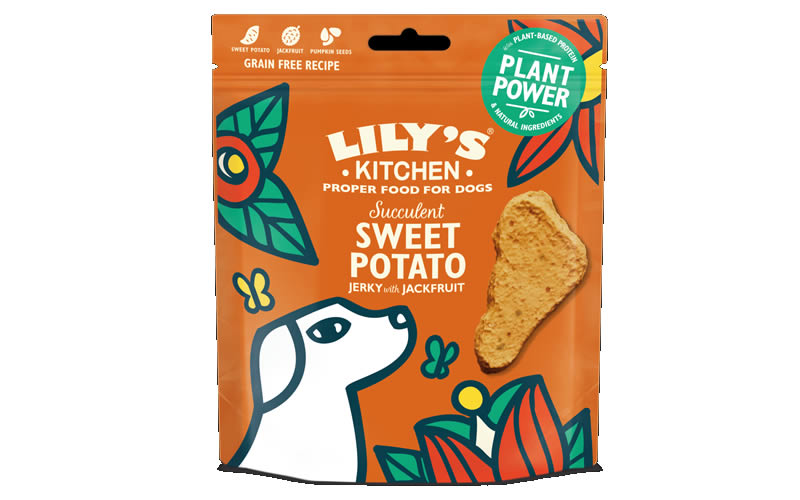
Demand for climate-friendly pet proteins
A recent Future Market Insights (FMI) report shows that the global vegan pet food market is expected to be valued at US$ 13.58 billion in 2023. In a decade, it is expected to increase at a CAGR of 7%, reaching a value of US$ 26.35 billion. The category has expanded faster than the conventional pet food industry because consumers are becoming more conscious about their pets’ well-being and are looking for environmentally friendly and ethical food choices for both themselves and their animal companions, says FMI.
Moreover, a recent survey by The Vegan Society reveals that 30% of UK consumers would be interested in vegan pet food if it is a healthier option, while 13-17% would buy depending on the price. Regarding motivation, around 4 out of 10 said taste approval (by dogs) was the key factor, followed by nutritional benefits.
It is worth noting that recently, the vegan dog food brand v-dog in the US released the first comprehensive study on the long-term effects of a plant-based diet for dogs. Completed by clinician-scientists at Western University of Health Sciences College of Veterinary Medicine, the research (read it here) confirms that dogs can thrive long-term on plant-based kibble while having a more positive impact on the planet.
“We believe the pet food industry is on the cusp of a new renaissance, with a multitude of more sustainable, climate-friendly proteins and ingredients emerging to enhance the health and wellness of our pets,” Rich Kelleman of Bond Pet Foods commented in a recent interview with Vegconomist.
Studies claim positivity with alternative pet diets
Many owners willing to consider alternative pet diets, studies claim with a high proportion of cat and dog owners now prepared to explore alternative, more sustainable diet options
Plant-based vs Insect-based dog food
Insect Protein-Based Diets as Potential Risk of Allergy in Dogs, and Higher Cost
Avian Flu Pandemic Risk from Raw Feeding
The APHA (Animal Plant and Health Agency.gov.uk) sends anyone interested in environmental matters, emails about looming threats. As a vet, this is what I have received recently in my email inbox - In my inbox yesterday 11th November - An Avian Influenza Prevention...
Raw dog and cat food fuelling spread of antibiotic-resistant bacteria
The very real and always present danger of this latest study yet again finding antibiotic-resistant bacteria in raw commercial cat foods!
UK Petfoods MUST Keep Up!
Using animal byproducts in meat and fish-based pet foods is NOT sustainable!
Cats dying after eating Avian-Influenza-contaminated raw pet food!
Does vegan cat food provide the solution?
Fermented Protein Pet Food – the Future?
Is precision fermentation our future way to feed not only our pets, but ourselves too? Yes it most certainly is!
Could our dogs or cats trigger an avian influenza pandemic?
As our memories of the last COVID 19 disappear, the potential for another pandemic looms and pets could play a role in transmitting it
Using microbial protein for the very first time in dog treats!
This first-of-its-kind protein is derived from bacteria that have been consumed by humans for centuries in foods such as kimchi, kefir, and sauerkraut
BVA says it is possible to feed dogs plant-based
The British Veterinary Association (BVA) has ended its opposition to (nutritionally-sound) vegan diets for dogs
The truth about ‘RSPCA Assured’ farms
The footage obtained from these farms, including distressing images of decomposing pigs, dying chicks, and salmon with missing eyes, is simply indefensible
The Great Protein Debate – Beef or Beans?
Dr Sue Paterson, RCVS President and Senior Vice President of the European Society of Veterinary Dermatologists interviews Dr Arielle Griffiths about Sustainable Pet Foods
Recommended sustainable pet foods
